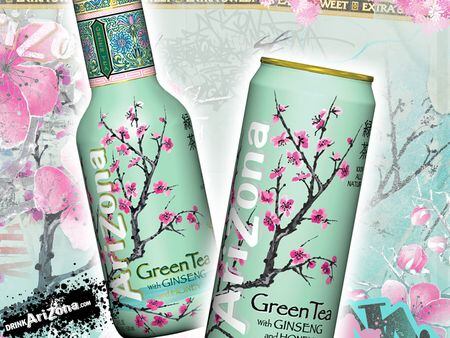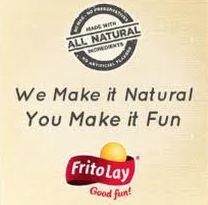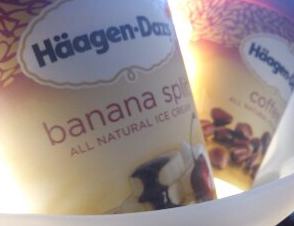Stephen Gardner, director of litigation at consumer health advocacy group the Center for Science in the Public Interest (CSPI), has sued scores of food and beverage giants from PepsiCo to Kellogg, General Mills, and Coca-Cola over allegedly false and misleading claims, including ‘all-natural’ claims.
And in his view, Judge Seeborg’s March 28 ruling (click here ) does “not set any kind of legal precedent”.
AriZona Ice Tea ruling ‘means nothing as to setting a precedent on natural claims’
Seeborg did not toss the case because he had come to important new conclusions about what ‘natural’ means, Gardner told FoodNavigator-USA.
In fact, the judge did not even address the issue of what is - or isn’t - ‘natural’, said Gardner.
“He didn’t have to. The case was thrown out because the plaintiffs did not meet a deadline set by the court. Seeborg concluded that the plaintiffs had not met their burden in opposing the motion for summary judgment. It means nothing as to [setting a] precedent on natural claims.
“What is in fact a positive precedent is his earlier opinion finding that the case was appropriate to be a class action in the first place.”
I don’t care what a scientist or indeed a lawyer thinks ‘natural’ means
Gardner has not read the expert report from Dr Thomas Montville submitted to the court in support of the defendants’ claims that HFCS and citric acid are ‘natural’.
But he added: “As I’ve frequently said as a consumer lawyer in these cases, I don’t care what a scientist or indeed a lawyer thinks ‘natural’ means.
“All that matters is what consumers think natural means. And consumers are entitled to be incorrect.”
What matters is that consumers will reasonably assume that the antioxidants in Pomegranate 7UP Antioxidant come from pomegranates

Similarly, in a case filed by California plaintiff David Green against Dr Pepper Snapple Group alleging false and misleading labeling and marketing of its (now defunct) 7UP antioxidant beverages, the issue at stake is whether consumers feel deceived, said Gardner, who is one of the attorneys representing Green.
In their motion to dismiss the case, “defendants try to hide behind the law of federal preemption” by arguing that their claims are “factually correct and required by federal law”, he said.
But “what matters is that consumers will reasonably assume that the antioxidants in Pomegranate 7UP Antioxidant come from pomegranates, the fruit pictured on the label and in the brand name, when in fact the product contains no pomegranate juice - or any other fruit juice - and the antioxidants in it are from added vitamin E", said Gardner.
Companies always try and convince courts that if they comply with specific labeling rules they can’t be seen as deceptive

He added: “These companies always try and convince the courts that if they comply with the antioxidant labeling rule they can’t possibly be seen as deceptive. Well of course they can!
“It’s like saying, I filled out every form on my tax return correctly, why do I have to tell you my income?”
Is the wave of civil litigation changing the way foods are marketed?
But is there any sign that the tidal wave of civil litigation engulfing food and beverage firms over labeling claims is having any impact on the way they are marketing their products?
“It’s hard to say,” said Gardner.
On the one hand, manufacturers now know that if they describe products containing certain ‘red flag’ ingredients (GMOs, HFCS) as ‘all-natural’, there is a good chance that they may be sued, he noted.
On the other hand, given that a steady stream of these lawsuits is still being filed, you can assume that some larger firms at least have simply factored in the potential costs of fighting or settling such claims into their budgets, and are taking their chances, he said.
However, simply being threatened with legal action from the CSPI has prompted several big companies (Pinnacle Foods, General Mills, Cadbury Schweppes, Pfizer, P&G, Nestlé) to change their labeling and marketing in recent years, he added. (Click here for examples.)
Should the FDA adopt USDA’s definition of ‘natural’?

But what about natural?
The FDA has offered some rather vague advice (natural is where ‘nothing artificial or synthetic - including all color additives regardless of source - has been included in, or has been added to, a food that would not normally be expected to be in the food’), and has not shown any enthusiasm for coming up with a more specific definition, said Gardner.
As are result, he said, all food and beverage manufacturers would be well-advised to look to USDA’s definition (which applies to meat and poultry products under its jurisdiction), in which a natural product contains ‘no artificial ingredient or added color and is only minimally processed’).
“Several groups including the CSPI and the Sugar Association have asked the FDA to adopt the USDA definition, if it is not going to come up with one of its own. I think it is a really good definition.”
Click here to read more about the AriZona case.
Click here to read more about the Dr Pepper Snapple Group 7UP antioxidants case.
